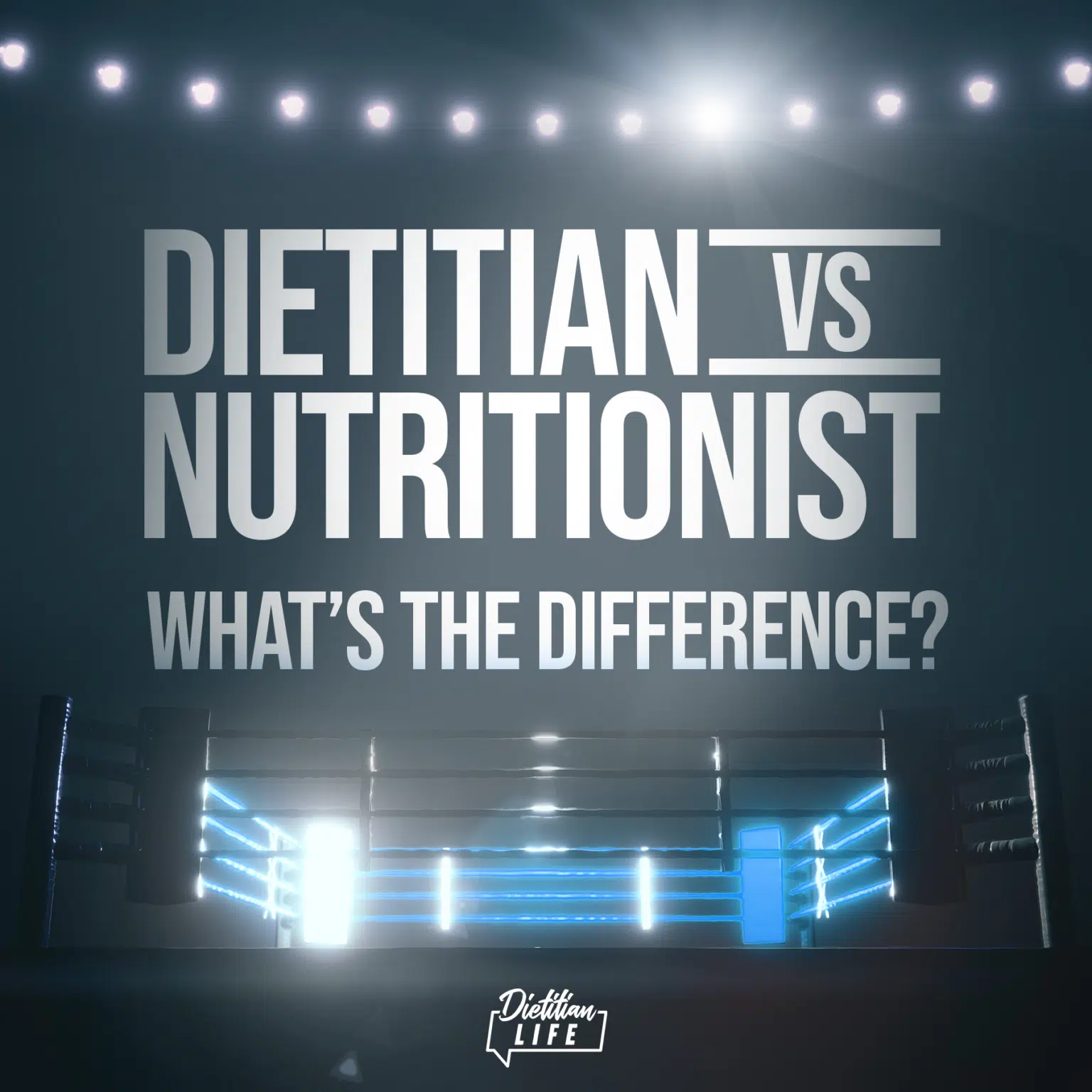All Categories
Featured
Table of Contents
-1
And if you would certainly such as to get into the food and nutrition sector, it's worth understanding what those distinctions are now. Dietitians aid their customers browse the connection in between food and wellness.
-1Nutritionists normally work in group settings, enlightening larger neighborhoods and organisations. They can likewise work in other areas such as: Testimonial plans and policies around foods, consisting of high quality checks. Guarantee that food is created to satisfy food safety criteria. Develop programs and interventions to help the broader public address food problems.
-1The primary distinction to understand is that the nutrition career isn't controlled in Australia. This implies that technically, anyone can call themselves a 'nutritional expert', while you should have an accepted dietetics qualification to be a dietitian.
-1The typical wage for a nutritional expert is $75,000 per year. This can vary from $60,000 to $90,000, depending on the role.
Senior Diet Optimization ( Cockburn)
-1Eager to deal with customers on their nutritional objectives earlier as opposed to later? After that research a level in nourishment. Wish to take your expertise even further, and aid deal with diet-related medical conditions? An occupation as a dietitian may be ideal for you. In either job, you will certainly play a crucial role aiding individuals make the very best choices for their diet plan and health and wellness.

-1
Dietitian and nutritional expert: both of these occupations function around diet and food, yet are they the very same? While they overlap somehow, these tasks are actually rather different. So what exactly is the difference between a dietitian and a nutritionist? The brief response is that a dietitian operates in a controlled area, and must have finished a bachelor's degree.
-1Despite the distinctions in certifications between a dietitian versus nutritionist, the salaries are rather similar. Both nutritional experts and dietitians earn an average of $75,000 to $95,000 a year nevertheless, salaries can vary considerably depending upon area and experience. While there is a greater need for qualified dietitians, nutritionists tend to have greater work complete satisfaction.
Holistic Dietitian – North Lake
-1You can operate in a large array of industries for a wide range of organisations and even for on your own. If you're still uncertain regarding whether to end up being a dietitian versus a nutritionist, the adhering to may aid you choose. As a dietitian, you might enjoy an occupation as a: a registered dietitian or dietitian nutritionist is somebody who functions in the basic location of dietetics, recommending diet plans, supplementation and dietary aids to support healthy and balanced way of livings and illness monitoring.
-1To come to be country wide accredited, dietiticians have to join the Accredited Practising Dietitian (APD) program and become a member of Dietitians Australia. Whether dietitian or nutritional expert is a far better career for you far better depends upon your personal choices. It is very important to note that all dietitians are nutritional experts, however not all nutritional experts are dietitians.
Registered Nutritionist ( Cockburn 6163)
-1Both occupations are involved with helping people accomplish their wellness goals through food education and learning, but there are lots of elements that establish them apart. If you're interested in suggesting individuals on nutritional and nutritional issues, you may have what it requires to come to be a nutritional expert or dietician. The area of food scientific research is extremely wide, providing an array of career possibilities to qualified specialists.
-1Nutritional experts are experts in offering evidence-based guidance and solutions connected to nourishment. Via routine consultations, nutritionists aid clients understand the web link in between diet plan and health and wellness so they can make even more enlightened decisions around food and live a healthier lifestyle. Nutritional experts generally collaborate with clients on a private basis, although they also function with teams with a details goal (e.g.
Personal Nutritionist
-1Despite the fact that you don't need to study to become a nutritionist, doing so might boost your possibilities of advancing your occupation in this area. Courses that have a specialized in Nourishment, like the HLT43015 Certification IV in Allied Wellness Support (Nourishment and Dietetics Expertise), are designed to establish your understanding of the relationship between food and health, permitting you to supply professional guidance on nourishment.
Best Nutritionist (North Lake)
-1Jul 09, 2018 Australia presently does not regulate the specialist titles 'nutritionist' or 'dietitian', leaving a wide market for false information if you do refrain from doing your own research. The media likewise tends to make use of the two terms interchangeably, making differences in between certifications progressively challenging. Keep reading as we break down the differences between these occupations, their pertinent qualifications, what they can do for you and what to look for when trying to find a professional to aid you.
-1You have determined that you need to improve your health and that working on your diet regimen is the best location to begin. You have become aware of the benefits of dealing with a dietitian or a nutritional expert, but you aren't certain which you require or exactly how to select who to collaborate with.

-1
The main differences are the type of research that has actually been completed by each professional, and the laws connected to each title. A dietitian has met the nationwide and global requirements for expert regulation. Dietitians are the only nourishment experts to be controlled by legislation, and they are controlled by an ethicality (much like medical professionals are) to make certain that they constantly function to the greatest criterion.
-1On the various other hand, somebody who has the title of a nutritionist is not secured by regulation in many nations, and it is not a controlled term. All dietitians are considered to be nutritionists; nonetheless, nutritionists without a dietetics credentials can not tackle the been experts duty of a dietitian. For someone to become a registered dietitian, they require to have completed a 4 year university level in Nutrition and Dietetics, or a 3-year science level adhered to by a Masters Level in Nourishment.
Clinical Dietitian – Cockburn

-1
Currently that every one of this details has actually been offered, we can reroute our focus to the opposite end of this dietician vs nutritionist debate. On an all natural degree when going over 'what is the difference in between a dietician and a nutritional expert?', we can claim the roles do not differ hugely. Dietitians will certainly still organise food and nutrition plans, in order to advertise a healthy way of living among their clients.
-1Diet professionals can likewise work in instructional establishments such as Colleges. As opposed to this, the biggest distinction between a nutritionist and dietitians in the UK is that nutritionists to operate in clinical sectors. Functional Dietitian. Instead, they can function within the fitness and health market in duties such as dietary consultants in food distribution companies, in addition to a personal instructor who provides advice and referrals to their clients
-1This brings us on to going over the next difference between a diet professional and nutritional expert in the UK. You may have read this heading and questioned 'is there a distinction in between a diet professional and a nutritionists' clients?'. It's only natural to presume that any individual checking out either specialist will be doing so for similar factors, yet this is not the case.
Latest Posts
Dietwise.net.au - Our Blog – Rockingham
Listen To Your Heart ( Swan)
Helplines ( Stirling 6018)